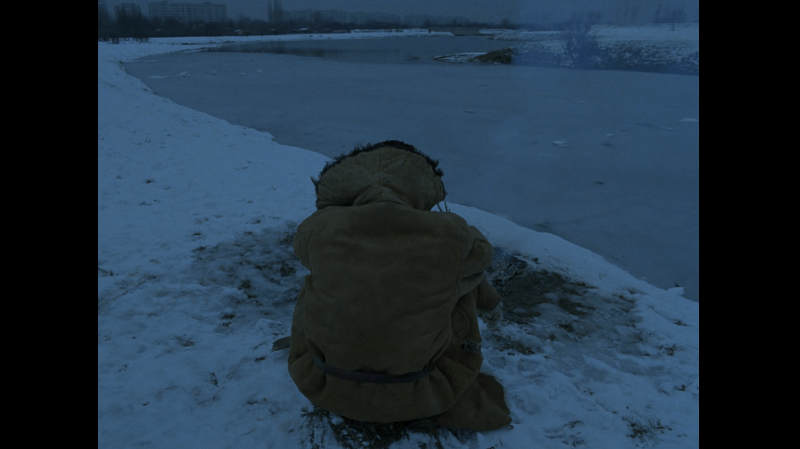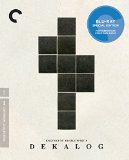| Reviews & Columns |
|
Reviews DVD TV on DVD Blu-ray 4K UHD International DVDs In Theaters Reviews by Studio Video Games Features Collector Series DVDs Easter Egg Database Interviews DVD Talk Radio Feature Articles Columns Anime Talk DVD Savant Horror DVDs The M.O.D. Squad Art House HD Talk Silent DVD
|
DVD Talk Forum |
|
|
| Resources |
|
DVD Price Search Customer Service #'s RCE Info Links |
|
Columns
|
|
|
Dekalog: Criterion Collection
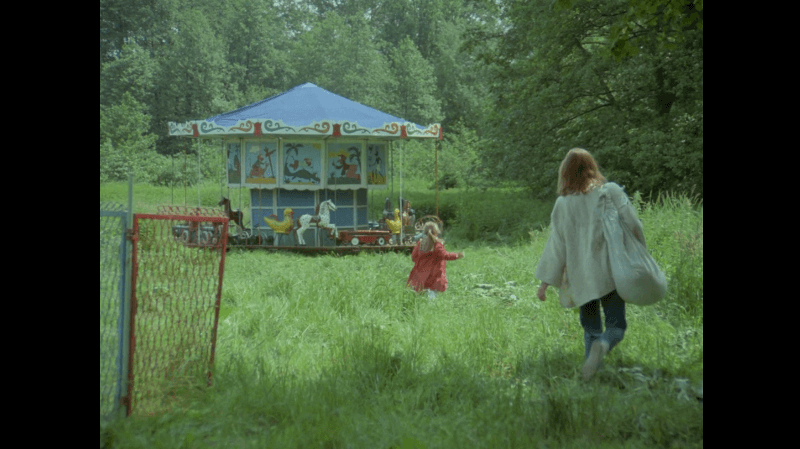 Directed and co-written by late Polish filmmaker Krzysztof Kieślowski, the ten-part Dekalog (1988) is a series of one-hour TV films that attempt to loosely interpret the biblical "Ten Commandments" as modern examinations of life. Featuring different themes, characters, settings, and cinematographers, each part is more or less its own entity; the only loose strings connecting them all are occasional "crossover" appearances of several major and minor characters, as well as the backdrop of massive, nondescript apartment buildings in Warsaw and the appearance of a nameless character (Artur Barciś) who silently observes the action without getting directly involved. Like most of the director's more well-known productions (The Double Life of Veronique and Three Colors Trilogy), Dekalog chooses to focus heavily on the metaphysical links between objects, people, and encounters in a physical world.
One offers an accessible introduction to Dekalog, as we follow atheist professor Krzysztof (Henryk Baranowski) and his extremely bright 12 year-old son Pawel (Wojciech Klata). Pawel becomes curious about mortality after discovering a dead dog outside their apartment...especially in light of comments made by his aunt Irena (Maja Komorowska), a devout Catholic. Exploring the obvious friction between faith-based claims and a more empirical outlook on life, their lives are changed after a failed weather calculation leads to tragedy on a frozen pond. Were father and son punished for attempting to control their lives through science, or was it simply due to human error? Two introduces us to an elderly, experienced doctor (Aleksander Bardini) who's connected to his middle-aged neighbor Dorota Geller (Krystyna Janda) by way of her gravely ill husband Andrzej (Olgierd Łukaszewicz), a patient at the same ragged, run-down hospital where he works. Desperate for a prognosis, she eventually shares the secret that she's pregnant with another man's child and will choose abortion if he manages to beat cancer. As "the good doctor" is unwilling and/or unable to offer Dorota a definitive answer, she now faces a number of difficult choices that remind us of life's fragile and unpredictable nature. The odds aren't great for husband and wife...or are they? Three, taking place on Christmas Eve, follows cab driver Janusz (Daniel Olbrychski) as he attends a midnight mass with his wife (Joanna Szczepowska) and children. It's there that he shares an unexpected reunion with Ewa (Maria Pakulnis), who he had an affair with three years earlier. After confessing that her husband has gone missing, Ewa and Janusz---who lies to his wife, saying his cab has been stolen---spend the night looking for him. The lies don't stop there, and both eventually learn the truth about one another before the night's over. As one of many parts that examine selfish behavior, Three depicts illogical choices made by very real, very human characters.
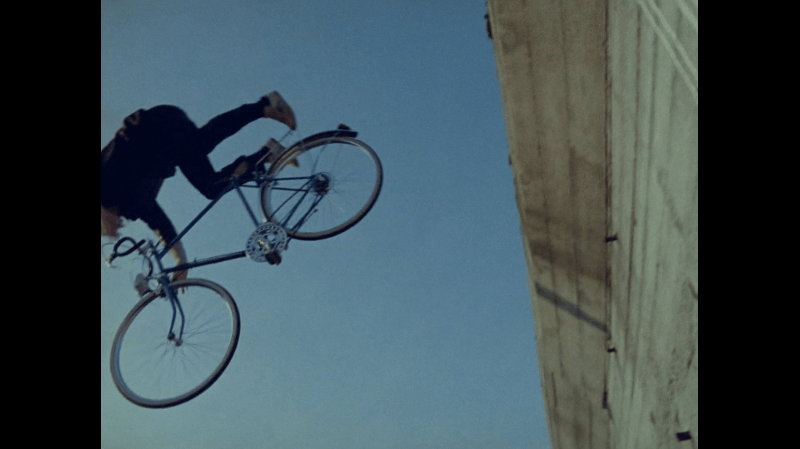 Four examines the uncommon relationship between widower Michal (Janusz Gajos) and his daughter Anka (Adrianna Biedrzyńska), who have lived alone since her mother's death just after she was born. They're more like roommates or best friends than the typical father-daughter association, enough to the point where she feels guilty when dating other men. After discovering a letter from her mother and Michal when he's away on business, Anka learns the truth about why she's always felt a little different about him as a father figure and struggles with accepting it. Five is the first to break from "tradition", at least visually. This yellow-tinted tale of crime and punishment, framed at 1.70:1 and often shot using pinhole lighting, examines the murder of middle-aged cab driver Waldemar Rekowski (Jan Tesarz) from multiple perspectives: troubled drifter Jacek Łazar (Mirosław Baka), optimistic defense attorney Piotr Balicki (Krzysztof Globisz) and, of course, the victim himself. The story is expanded slightly in 1988's A Short Film About Killing (included on Disc 3), a theatrical cut with added and alternate scenes that delve deeper into each perspective while maintaining a staunch opposition of capital punishment. It's a gripping tale that's hard to watch at times, both for its unflinching violence and the (almost) morally vacant protagonist at its center. Six, like the previous entry, is framed at 1.70:1 and the theatrical cut (1988's A Short Film About Love, also on Disc 3) expands its story by 30 minutes. Both are largely shown from the perspective of orphan Tomek (Olaf Lubaszenko), a nineteen year-old who's attracted to the older Magda (Grażyna Szapołowska); whether spying on her from across the street of his apartment or "accidentally" breaking up her dates with other men, his behavior has long passed the point of obsession. When he finally admits his feelings to Magda, their relationship gradually shifts to reveal her own obsessions...and, of course, the inevitable fallout that comes with a fragile foundation. Well-acted and appropriately uncomfortable at times, portions of Six fall somewhere between Rear Window and The Graduate. Seven---and probably the most complicated thus far---follows school headmistress Ewa (Anna Polony), the mother of 22-year-old Majka (Maja Barelkowska) and grandmother of Ania (Katarzyna Piwowarczyk), born to Majka six years ago after she became involved with one of Ewa's older co-workers. To initially protect Majka's reputation and her own, Ewa convinced her daughter to claim Ania as a younger sister rather than her own daughter...but the plot thickens once Majka grows tired of their "agreement" as well as family life with Ewa and distant father Stefan (Wladyslaw Kowalski), kidnapping her own daughter in hopes of fleeing the country and starting a new life together.
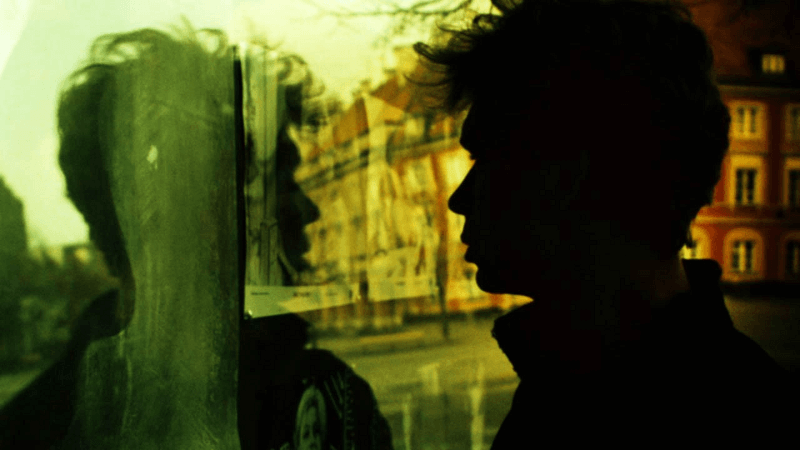 Eight, taking place in not-so-distant past of 1985, centers around Holocaust survivor Elżbieta (Teresa Marczewska) and her reunion with older acquaintance Zofia (Maria Koscialkowska), an ethics professor who she worked with in the field of language translation. After Elżbieta describes a vaguely familiar ethical situation during one of Zofia's lectures, the latter eventually realizes that their personal connection may have begun much earlier than expected. Interestingly enough, a stamp-collecting friend Zofia's will be a subject in the tenth and final episode. Nine details the tragic tale of Dr. Roman Nycz (Piotr Machalica), recently diagnosed with impotence but still very much in love with his younger wife Hanka (Ewa Błaszczyk). Despite their inevitable lack of sexual compatibility, Roman and Hanka discuss their future frankly, with the latter insisting that she will not seek affection from another man. Unfortunately, she eventually breaks her near-impossible promise with physicist Mariusz (Jan Jankowski), and thus begins a convoluted yet unpredictable series of events birthed from a few bad decisions. Ten ends Dekalog on an unexpected note, offering a bit of dark comedy in place of the doom-and-gloom present in most other chapters. Brothers Jerzy and Artur (Jerzy Stuhr and Zbigniew Zamachowski) are informed that their father Czesław has died. Initially unsure of his exact possessions, the brothers learn that he owned a valuable stamp collection and kept it well-guarded in his apartment...and being new to the trade of stamp collecting (and untold wealth, it would seem), the series of events that follows is a fine mixture of joy, loss, paranoia, and reconciliation. Brilliantly absurd at times, it's almost frustrating that Dekalog didn't explore this territory earlier.
Dekalog's reach almost exceeds its grasp, but its "Ten Commandments" gimmick isn't all that necessary---and, in my opinion, is best ignored---to appreciate everything that it offers. When treated as a whole, these ten films present uniquely cohesive examinations of modern life that, more often than not, serve up universal truths and cautionary tales in a relatively efficient way. I'll admit that several of its stories rely a bit too much on twist endings---not to mention that there aren't many genuine rest periods during all the bleakness---yet the humanity in almost every character eventually shines through. Rarely-seen in the US until Image's 2000 DVD boxed set (subsequently reissued in 2003), Dekalog has long been a missing link for fans of the director's more well-known films. Criterion's highly anticipated Blu-ray package contains all ten parts on two discs, along with both full-length films (A Short Film About Killing and A Short Film About Love) and a fourth disc with plenty of additional supplements.
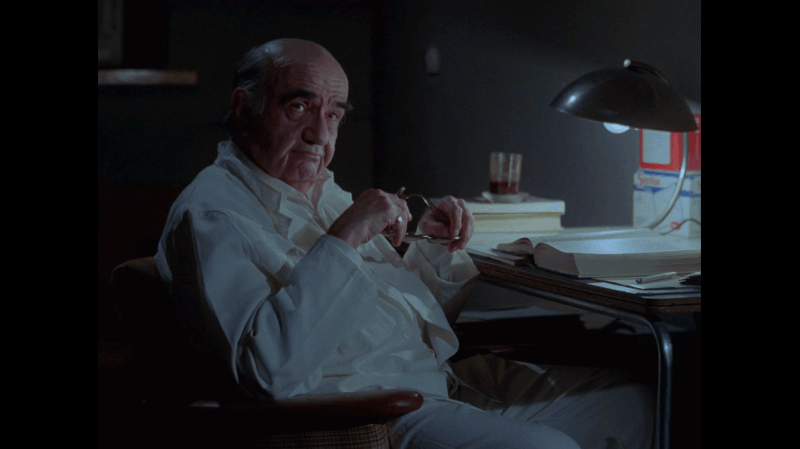

 Presented in their original 1.33:1 aspect ratios (save for Five and Six which, like their theatrical counterparts, are framed at 1.70:1), all ten chapters of Dekalog look quite good overall. Sourced from new 4K masters, these 1080p transfers do a very good job of presenting the 16mm (?) films accurately...and though nine different cinematographers are credited on these ten films (only Piotr Sobociński, who lensed Three Colors: Red, worked on more than one), most of them have a similarly bleak and shadowy appearance. Black levels are decent but often lean towards dark grey, color saturation is appropriate for the mostly muted palettes, and image detail and textures are uniformly good. Some may balk at the notion of cramming roughly ten hours of content on the first two discs, but a cursory comparison between Five and Six with their theatrical versions (which get a disc to themselves) shows no obvious differences. Overall, these look great and represent a substantial upgrade from the DVD editions. About the running time: Filmed at the PAL standard of 25 fps, each of Dekalog's ten parts originally ran about 53-56 minutes apiece. As with the earlier DVD packages, Criterion's Blu-ray presentation plays at the NTSC standard of 24 fps and, as a result, the running times are lengthened by 4% (or about 3-4 minutes per episode). This should hardly be a deal-breaker for most fans, but apparently an upcoming Region B ten-disc Blu-ray boxed set from UK distributor Arrow Films will preserve the original format, among other differences from Criterion's release.
Less obvious but still appreciated are the linear PCM 1.0 mixes for each film (including both movies), which serve up clear dialogue and music cues that don't fight for attention. There's a modest amount of depth to this lossless presentation, but Dekalog is largely a down-to-earth presentation that rarely showcases anything more than indoor conversations. Unlike the DVD boxed sets, the English subtitles are removable...but they're for speech and partial text translation only, which goes for the bonus features too. Overall, fans should be pleased.
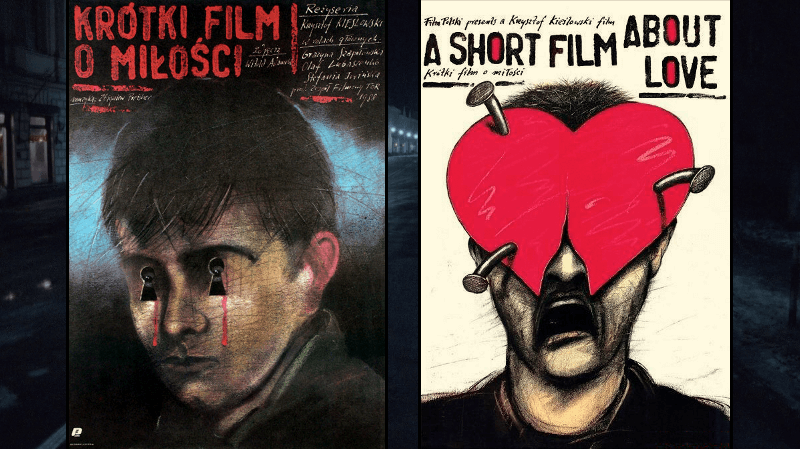
 As expected, Criterion's interface is smooth, descriptive, and easy to navigate. This four-disc release is packaged in a fold-out digipak case with two overlapping hubs on each side; a thick Booklet (more of an actual book, really) is also included, featuring essays by film scholar Paul Coates and excerpts from the 1993 book Kieślowski on Kieślowski. An outer paperboard slipsleeve, whose artwork is repeated on the menu, holds everything together.
 Aside from the Trailers for A Short Film About Killing and A Short Film About Love (5 minutes total, and included with the films on Disc 3), all the proper extras have been grouped together on Disc 4. First up is a collection of archival Director Interviews with Krzysztof Kieślowski, sourced from a 1987 Polish television piece filmed on the set of Dekalog: Two (4 minutes), segments from the 1995 documentary A Short Film About Dekalog (20 minutes), as well as a live audio recording at London's National Film Theatre (23 minutes) conducted by critic Derek Malcolm. The retrospective conversations continue with new and vintage Cast and Crew Interviews featuring almost two dozen members of Dekalog's production team. These chats include participation from Kieślowski's long-time writing partner Krzysztof Piesiewicz (25 minutes); thirteen actors (21 minutes total) including Maja Komorowska, Olaf Lubaszenko, Grażyna Szapołowska, Anna Polony, Ewa Błaszczyk, and Zbigniew Zamachowski (appropriately enough, some are shown at locations similar to their respective films); editor Ewa Smal (15 minutes); and cinematographers Weislaw Zdort (16 minutes), Swalomir Idziak (3 minutes), and Witold Adamek (12 minutes). Kieślowski's friend and creative confidante Hanna Krall (16 minutes) also contributes a more in-depth tribute to the late director.
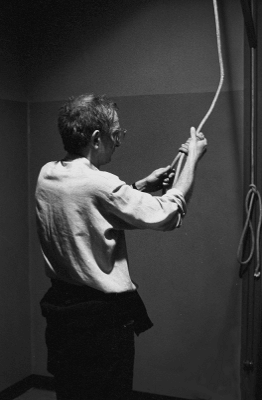 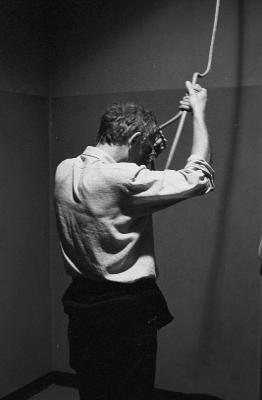 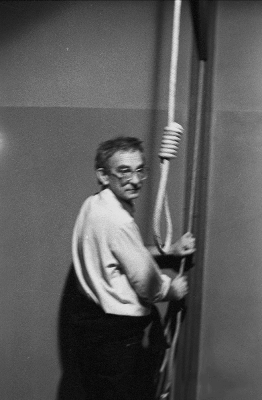 Closing out the extras is "Krzysztof Kieślowski's Masterful Poetry" (28 minutes), a visual essay about the formal and thematic patterns of Dekalog by film studies professor Annette Insdorf. Similar in format to Krall's tribute (though it also includes clips and vintage photos), topics of discussion include the director's notion of religion vs. spirituality, the recurring Artur Barciś characters, tonal shifts and continuity, thematic reappearances, vulnerable children, the use of flashbacks, objects as exposition, screenplays vs. the finished films, hidden connections and backstories, Zbigniew Preisner's original score, and more. It's a very candid, accessible, and honest analysis of Dekalog as a whole---maybe a little far-reaching at times, but still an entertaining and insightful piece that fans will enjoy.
 Krzysztof Kieślowski's ten-part Dekalog loosely interprets the biblical "Ten Commandments" as modern examinations of life in post-Communist Poland, and it's subtitled...but don't let that scare you off. This series of accessible short films weaves together plenty of intrigue, bleakness, drama, and even a bit of black humor---and though it's one of the few multi-part productions that probably isn't best watched as a non-stop marathon, those who enjoy the director's feature-length films (The Double Life of Veronique and Three Colors Trilogy) will appreciate almost everything Dekalog brings to the table. Criterion's long-awaited and thoughtful boxed set gives all ten parts a much-needed upgrade in the A/V department; sourced from a recent 4K master, they easily outpace the DVD collections released more than a decade ago. The addition of two "extended cut" versions (A Short Film About Killing and A Short Film About Love, both released theatrically in Poland) and a full disc of additional supplements is just icing on the cake, making this four-disc collection a no-brainer for seasoned fans of the director. Highly Recommended. |
|
| Popular Reviews |
| Sponsored Links |
|
|
| Sponsored Links |
|
|
| Release List | Reviews | Shop | Newsletter | Forum | DVD Giveaways | Blu-Ray | Advertise |
|
Copyright 2024 DVDTalk.com All Rights Reserved. Legal Info, Privacy Policy, Terms of Use,
Manage Preferences,
Your Privacy Choices | |||||||









